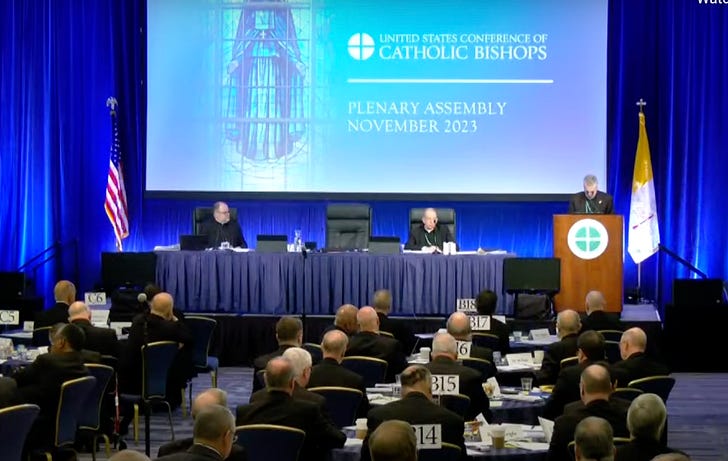Bishops vote to keep abortion as ‘our preeminent priority’
"The threat of abortion remains our preeminent priority," says the amended document, approved by the bishops Wednesday.
The U.S. bishops on Wednesday approved an “introductory note” to give voting guidance to Catholics, which included the passage of a last-minute amendment emphasizing that opposing abortion is the preeminent priority for the bishops’ conference.

The measure was approved at the fall gathering of the U.S. bishops’ conference, held in Baltimore, with no flo…
